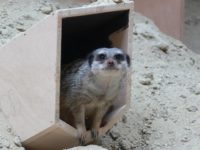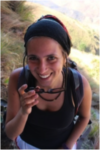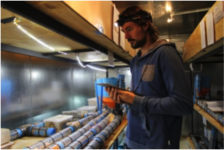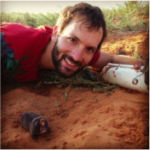ZIF001 – Mohumagadi

Name: Mohumagadi (short: Magadi; “Queen” in Tswana language) Position in the group: ZIF001 is the dominant female. Date of birth: 14-September-2008 History: Born in Cologne Zoo (Germany), ZIF001 was moved to Parc Zoologique et Botanique de Mulhouse (France) in July 2010, with two of her sisters (click here for a video about their arrival).…







